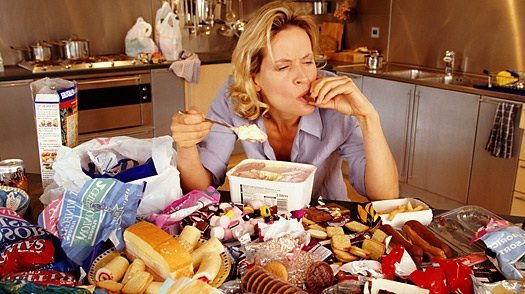Soy is one of those food that’s always in the news. First it’s good for you, then it’s bad for you, then it’s good for you again. So which is it?
The answer to that depends on what kind of soy, how much soy, and what else you’re eating. Here are some answers to common questions about soy.
What soy products are healthiest?
Whole soybeans, or products made from whole soybeans, offer the most health benefits and least risk. As with most foods, the less processed, the better! Aim to get your soy fix from edamame (whole soybeans), soy milk (buy the kind that has “whole soybeans” near the top of the ingredients list) and tofu. Other foods with soy derivatives — like protein bars, fake meat, some veggie burgers, some cereals and snack foods — are highly processed and have so much other stuff added to them that they are no longer healthy.
What is soy protein isolate?
Soy protein isolate is a soy derivative that’s often used to make meatless “meats,” protein bars, and some protein shakes and smoothies. It’s also added to many packaged, processed foods. lt’s these processed soy products that have been linked to undesirable health outcomes. Limit your intake of processed soy-containing foods. (These are not really good for you anyway).
How much soy is OK?
Health experts suggest that 1-2 servings of whole soy per day is healthy for most people, especially if it’s used as an alternative to fatty meat or other animal protein. This amount may also help to reduce the risk of heart disease.
Is it worth buying organic soy?
Most soybeans grown in the United States – about 85 percent – are genetically modified. While we don’t know exactly how this affects our health, I personally would rather not offer myself as a guinea pig. So I recommend buying organic soybeans, which are not genetically modified, and have been grown without the use of pesticides or other toxic chemicals.
Is soy milk healthier than cow’s milk?
Milk is healthy primarily because of it’s naturally-occurring protein and calcium content. Soy milk also has protein (6-7g per cup, as opposed to 9-10g per cup of skim cow’s milk) and is fortified with calcium, so it’s a healthy choice for those who can’t have dairy. If you do choose to drink soy milk, buy the unsweetened variety or one that’s lower in sugar (5 grams or less per serving). Here is a chart of milk vs. milk alternatives so you can compare all the options.
Does soy increase the risk of breast cancer?
In short: no. The science here is mixed, as some studies have concluded that soy is beneficial for preventing breast cancer, while others have shown a relationship between eating lots of (processed) soy and an increased risk. One thing is for sure though – eating whole soy foods instead of processed or fatty meats, is a healthy choice. As with anything, eat real, whole soy products, and do so as part of a diet rich in fruits and vegetables.
If you have other soy questions, leave a comment with your question and I’ll add the answer to this list!







5 Comments
Richard
May 10, 2012 at 6:48 pmI guess my question is “this”. Soy seems to be an additive (wanted or unwanted) in a gazillion other food products, nowadays. Everytime I look at a label, it says “May include soy”. So, do we really need to make a special effort to get soy into our diets, or are we already absorbing enough soy (for basic nutritional needs) through the use of all these other products? My next question (to which I don’t expect an answer) is “why” … instead of “soy” … aren’t they adding spinach and salmon and blueberries to all the packaged foods that I’m looking at, instead of the “May contain soy”? I know. I’m asking unanswerable questions. Sorry. 🙂
Bonnie
May 16, 2012 at 6:40 pmHow about soy and hypothyroid? I’ve heard that soy can adversely effect people with thyroid dysfunction. Sometimes it’s any soy, sometimes it’s only fresh soy and sometimes I hear it’s only fermented soy that causes the problems. Help!
Amelia
May 16, 2012 at 8:20 pmThanks for your question, Bonnie! You might find this post helpful: https://eating-made-easy.com/2012/05/09/soy-is-it-healthy-or-not/
Teresa
June 2, 2013 at 9:17 pmI have heard/read that soy interferes with the absorption of many nutrients, EXCEPT for fermented soy products, such as soy sauce, tempeh, and natto. I know for every article/study that proposes one thing, there are 10 that say the opposite. So, what do you think?
Amelia
June 3, 2013 at 10:25 amI’ve never seen a study showing that soy interrupts nutrient absorption. If that were the case, most of China and Japan would be nutrient deficient. Highly processed soy & soy protein derivatives can increase estrogen levels in the body, but whole soy is a healthy source of fiber and protein. Fermenting foods can offer other health benefits, but I don’t think it changes the availability of nutrients present in soy. I’ll do some more research to make sure this is all true and let you know~